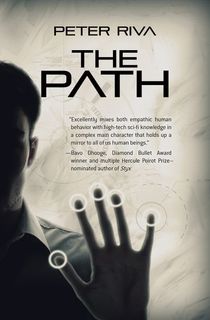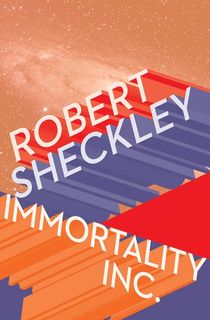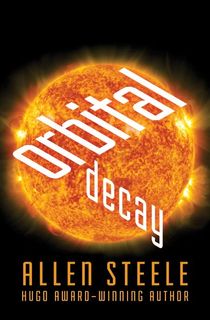Technology has the power to make our lives easier, but it's also omnipresent. We live our lives completely immersed in technology—sharing every aspect of our existence with the different apps that reside in the tiny computers we are constantly clutching at our sides.
But what happens if technology continues to learn from all the information you’re feeding it...so much so that it’s out of your control? It's no surprise that science fiction—a genre with a particular interest in technology—has produced some fascinating and frightening books about the dangers of all-powerful tech. This list highlights a handful of the best books that warn of technology taking over. After reading a few, you just might find yourself adjusting those Facebook privacy settings.

The Path
The hero of The Path is a relatable guy with a white-collar computer job. But the technology that Simon Bank works with is “the System,” a massive AI program that runs just about everything on Earth. Riva’s novel imagines a world in which we let computers think for us–and what would happen if that artificial intelligence then turned on us.

Immortality Inc.
Sheckley’s classic 1959 novel offers a unique take on future technology. In the world of Immortality, Inc., humans can keep their consciousness alive by swapping it into a brain-dead body. The technology that has taken over this world is focused on human consciousness, but how human is the experience of living on forever?

Orbital Decay
Science fiction writers often produce visions of fantastic technology – sleek, exciting machines and computers that can do wonderful things. But in real life, novelty wears off: When was the last time you gazed in wonder at your smartphone, instead of just complaining about your wireless service? In Orbital Decay, fantastic future space stations are just another bit of infrastructure, and the men and women that work on them are hard-hat folks who are about as down-to-Earth as you can be while in orbit. The creep of technology in Steele’s work is realistic and insidious, and his vision of a worker’s rebellion is compelling and important.

The Circle
The Circle is a dystopian novel for our time: The story of a powerful technology company that destroys privacy in the name of transparency. Eggers’ heroine joins the company–called The Circle–right out of college, and she slowly comes to see the dangers of the organization’s vision and power. The Circle is none too subtle, but it still feels frighteningly plausible in a world where most of us willingly hand over private details of our lives to services like Facebook and Twitter. The Circle was adapted into a film this year, which stars Tom Hanks and Emma Watson.
RELATED: 8 Freaky Predictions from Dystopian Novels That Have Come True

Ready Player One
Ready Player One is about life inside of a giant simulation. With the world ruined by global warming and other man-made disasters, most humans have opted to live the bulk of their waking lives in a virtual reality–essentially a huge video game. The game’s creator has passed away, but he left a secret in his creation: A hidden feature that will give control of the game and the creator’s fortune to whoever finds it first. Cline’s young protagonist is determined to be the one to find the secret, and his quest takes him on a fantastic journey full of clever settings and winking references that video game fans will get a kick out of.

Brave New World
Brave New World is one of the greatest dystopian novels ever written. Huxley’s 1931 novel envisions a world where technology has taken the place of some of humanity's most important traditions and purposes. In the book, pregnancy and childbirth are things of the past, as are romantic love, parent-child relationships, and grief. Most disturbing of all, most people don’t seem to care that so much of what makes them human has disappeared. Huxley’s vision of a dystopia with willing participants has aged incredibly well, and remains as vital as any dystopian novel ever written.

Altered Carbon
Altered Carbon is a cyberpunk novel with a mystery twist. In Morgan’s book, human minds can be stored and transferred into new bodies–a concept reminiscent of another book on our list, Robert Sheckley’s Immortality, Inc. In Morgan’s version, true immortality is out of reach for all but the super-rich. One such rich immortal is “resleeved” after an apparent suicide. But Morgan’s protagonist isn’t buying that story, and thus ends up investigating what he believes to be his own murder.
This post is sponsored by Open Road Media. Thank you for supporting our partners, who make it possible for The Portalist to celebrate the sci-fi and fantasy stories you love.




